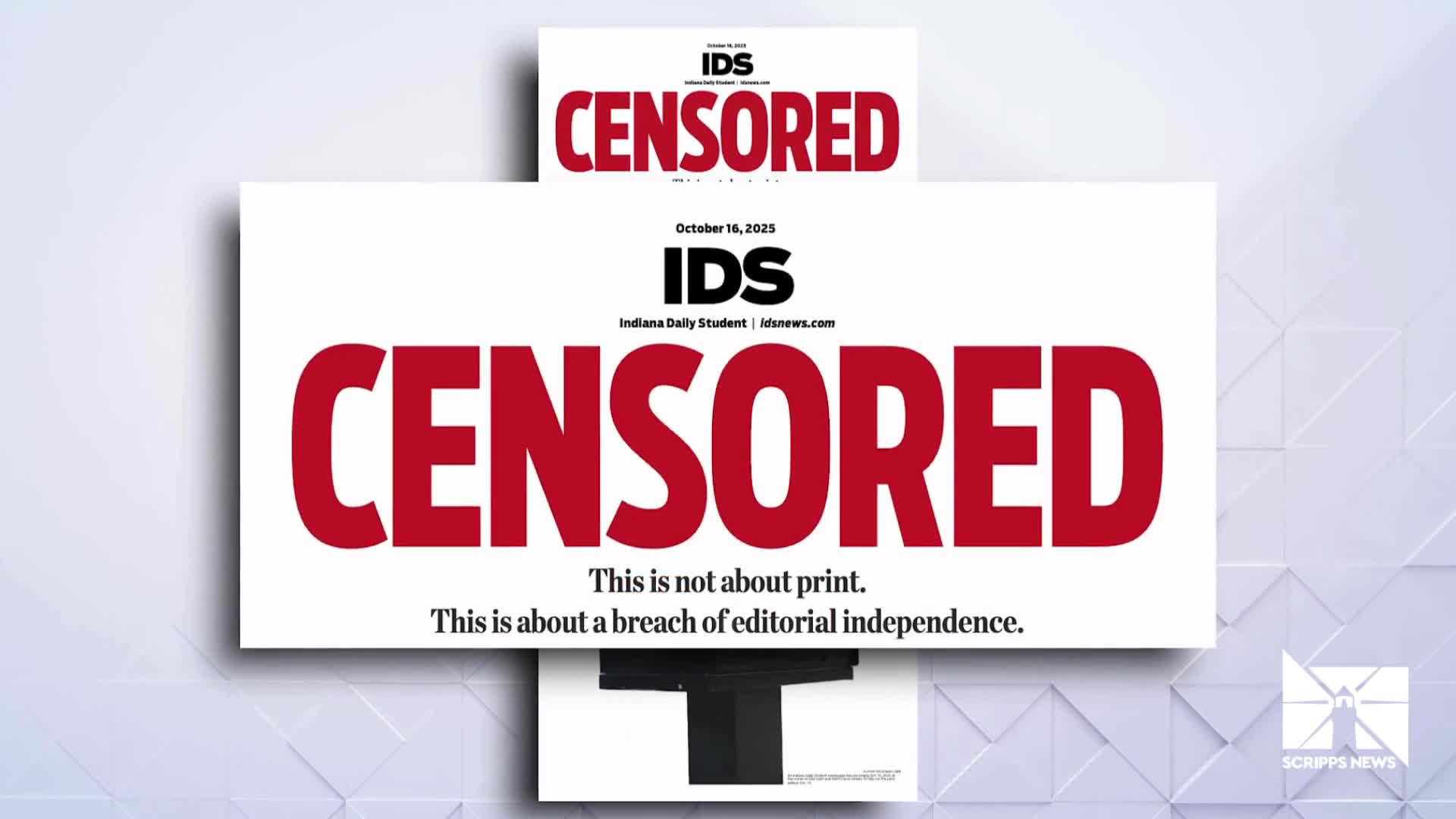For the first time in more than 150 years, Indiana University Bloomington’s revered student newspaper wasn’t printed this week — a move that’s drawing widespread backlash and accusations of censorship.
The university halted all printing of the Indiana Daily Student just days after firing the paper’s adviser, Jim Rodenbush. The editors-in-chief told Scripps News he was dismissed after they refused an administrative directive to remove news content unrelated to homecoming.
"It really doesn't make any rational sense to us. People pick up the newspaper for the news. The special editions obviously are very profitable because they include inserts on specific areas of coverage, often things that are ongoing or current. But people pick up that paper for the news," Andrew Miller, co-editor-in-chief of the Indiana Daily Student, told Scripps News
Miller and his co-editor, Mia Hilkowitz, said they were prepared to print this week's special edition when the administration stopped all printing.
"We had advertisers secured for this issue. We had designers working on it, stories already going in, delivery drivers hired," Hilkowitz said. "And they decided mid-week that not only will we double down on the fact that you can't print non-homecoming stuff, we will double down on the fact that now you cannot print at all."
RELATED STORY | Indiana University accused of censorship after canceling student paper’s print issue
The editors said the administration's decision amounts to censorship and a "clear breach of editorial independence."
In a statement to Scripps News, a spokesperson for The Media School cited a move to digital as the reason for stopping the presses.
"As part of the 2024 Action Plan for Student Media, the campus is shifting resources from print to digital media, prioritizing student experiences that are more consistent with today's digital-first media environment while also addressing a longstanding structural deficit at the Indiana Daily Student," the emailed statement reads. "Editorial control remains fully with IDS leadership, and the university will continue to work closely with them to ensure the strength, sustainability and independence of student media at IU."
The student newspaper has received support from prominent alumni, including billionaire Mark Cuban, and from free press advocates who argue there’s a difference between business decisions and content control.
"A business position would say, 'Yes, you’re only going to do print, or you can’t afford to do this type of operation,’" said Stephen Key, retired executive director of the Hoosier State Press Association. "But that’s different than saying, 'OK, we do not want you to publish any news in the print editions that you produce, and so if you’re not agreeable to that, then we’ll just wipe out all the print editions.
The paper's editors didn't speculate on what content the school may be trying to censor, but they noted a letter regarding Rodenbush was set to be included in this week's edition, a clear defiance of the school's "no news" directive. They also noted the paper has been pushing the university to release a review of plagiarism allegations against the school's president.
Hilkowitz and Miller say they fear the school's interference with the paper and its content has far-reaching implications.
"The IDS has been around for 158 years. We have been around longer than most student publications or student media organizations across the country," Miller said. "If it can happen to us, if administrators are allowed to steamroll us and clearly violate the First Amendment, what's gonna happen to other institutions?"












